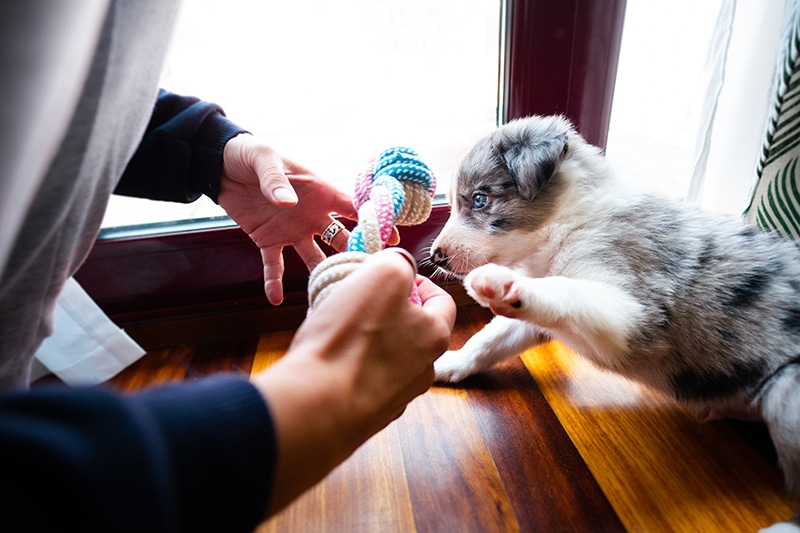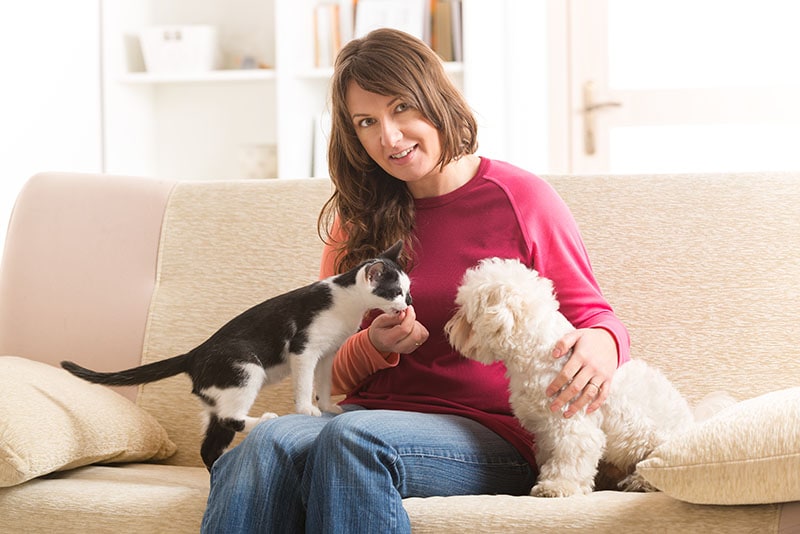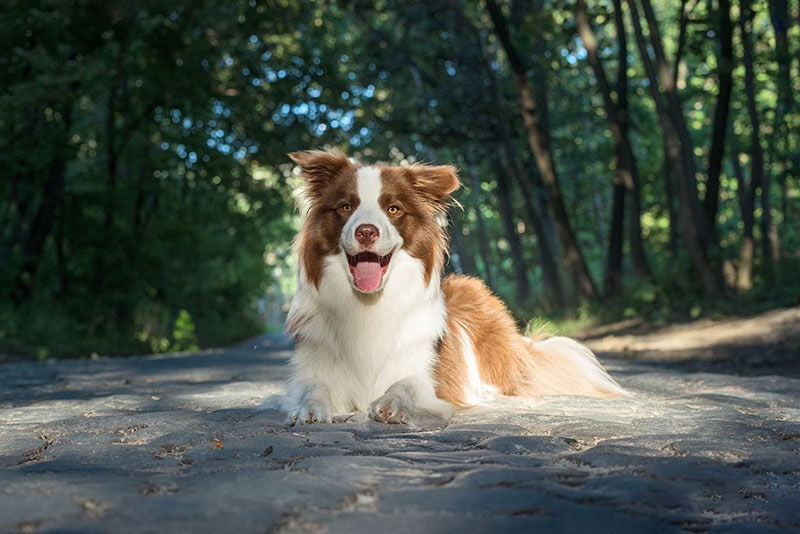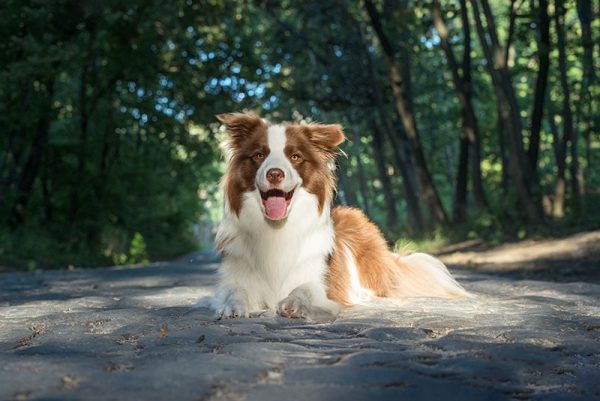If you have a beloved cat at home and are considering adding a dog to your family, you may wonder if Border Collies generally do well with cats. Border Collies are medium-sized herding dogs bred to keep track of and round up livestock. Border Collies’ herding genes sometimes trigger them to chase small animals, particularly ones running away, which can lead to unpleasantness as cats generally frown upon being pursued.
However, many Border Collies are fine around cats, particularly those they grow up with. Others never really master their instincts and must be supervised around cats and other small animals.
Are Border Collies Good Family Dogs?
Border Collies are sweet, loving dogs that generally bond deeply with their human family members. They make excellent family pets as most get along well with kids, although their interactions with small people should always be supervised due to the breed’s tendency to lean and herd, which can lead to tripping accidents.
Border Collies require lots of exercise, anywhere from 90 minutes to 2 hours of serious activity every day. They’re skilled athletes that love to run, jump and explore. Border Collies do best with active families who love to get out and explore.
Hiking, running, and swimming are just a few of the activities most Border Collies can’t get enough of. Keep in mind that Border Collies that don’t get enough exercise or mental stimulation often become stubborn and destructive.

Are Border Collies Good for Inexperienced Dog Owners?
Border Collies are generally better suited for experienced dog owners than those just getting their bearings regarding training. They are incredibly energetic and smart, which often makes training challenging.
Energetic dogs have a hard time remaining still when not interested in something, and many smart dogs become bored quickly. Because Border Collies are so intelligent, they can easily find other things to occupy their time, which can lead to less-than-ideal canine conduct. They often bloom under the care of experienced dog owners who use consistent, positive-reinforcement-based training to communicate expected behaviors.
Which Breeds Are Good With Cats?
Golden Retrievers, Basset Hounds, and Pugs all have cat-friendly reputations. Toy dogs and sporting breeds get along quite well with cats, as most don’t have incredibly strong prey drives.

Are There Breeds That Don’t Do Well With Cats?
Breeds that sometimes have difficulty getting along with cats include Greyhounds, Schnauzers, Terriers, and Afghan Hounds. But it really comes down to training and socialization, and matching the cat and dog’s size is also helpful.
A Shiz Tzu that tugs on its leash, hates cats, manages to get loose, and chases your neighbor’s pet can do far less harm than a giant canine. A poorly-trained and hyper Doberman Pinscher presents a different picture simply because of their strength, power, and bite force.
Are There Ways to Increase the Chances of Cats and Dogs Getting Along
It’s often easier to get dogs to accept cats they meet while still puppies, as they typically grow to include the felines in their family circle. However, you can take a few steps to ease the process along.
- Start by creating a dog-free safe space for your cat to retreat when they need time away.
- Ensure your cat’s room has a litter box, food and water bowls, and toys so they don’t have to leave to meet their basic needs. Give your buddy a few weeks to investigate and explore the space before bringing your new dog home.
- Plan on keeping your pets in different rooms first. Feed them on opposite sides of a door for 3 or 4 days so they begin to associate each other’s scent with appealing food.
- Let your cat do the initial investigating. Keep your dog on a leash for the first introductions. Give both pets lots of treats to reward good behavior. If either pet starts to become uncomfortable, end the interaction. Try to end things on a high note before anyone becomes stressed or agitated.
- When your cat and dog appear to be reasonably well-acclimated to each other, allow your pets to interact without you holding your dog’s leash. But keep the leash on your dog so you can quickly intervene if things take a wrong turn. Make sure to leave the door to the room open so your cat can escape and make it to their dog-free space if they begin to feel threatened.
While there are things you can do to improve the chances of your cat living in peace with a new dog, it doesn’t always work out. Some cats can’t make the transition. Older cats and pets who aren’t feeling all that well often don’t have the energy to deal with energetic puppies, which can lead to conflict and feline stress.
Final Thoughts
Border Collies are herding dogs, meaning their instincts are to control and corral other animals. They also have strong prey drives, leading many to chase cats and squirrels. These athletes have tons of energy and need at least 90 minutes of daily activity to stay reasonably centered.
Getting enough exercise may reduce stress levels and lower the chances of behavioral issues, including chasing incidents. Good training and socialization are essential when teaching Border Collies appropriate behavior around cats. Many Border Collies are well-behaved in the presence of cats, especially those they grow up around, but others cannot resist the urge to chase them.
Related Read:
Featured Image Credit: Anna Aybetova, Shutterstock












